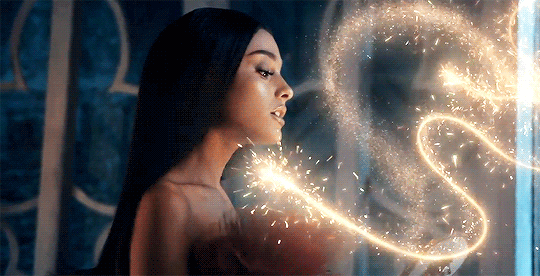🪄 The Magic of Great Brands
What is a brand? Why is brand management crucial for long-term corporate success? And what does it have to do with Barbie?
Hi 👋 I’m Florian Schleicher. This is the FutureStrategies newsletter of FUTURES. Thank you so much for reading along 💚 If you want to learn strategic marketing from me, then my Simple & Sustainable Marketing Academy is the perfect fit for you.
I would like to confess something to you...
I am a brand junkie.
I love it when brands enchant me, when they take me on a journey, when they give me the right arguments to buy them, when I realize that someone has thought wisely about them and then they take a permanent spot in my head.
Yes, although as a marketing strategist I know exactly how and why they do it and manipulate me to buy their products, today I am a big fan of brands like Patagonia, Lego or Apple. I like to pay a price premium because I know what I'm getting and I like to adorn myself with these brands. They give me a good feeling.
Let's start with the basics:
🕵️ What is a brand?
And how is branding different from marketing?
Branding is the act of communicating a positioning. Branding creates the context for how we are perceived.
Marketing, on the other hand, is the act of promoting and selling our products. Marketing gets messages out there.
Jeff Bezos, founder of Amazon says
“Your Brand is what other people say about you, when you’re not in the room.”
That sums it up quite well.
And also shows at the same time how difficult this process is.
Emily Heyward and Jenna Navitsky from the branding studio Red Antler also describe a brand not as the name, the logo or the color palette:
”Yes, each of those is an *element* of your brand, but brand is something bigger. Think about a coffee shop that you love. You love the ambiance in the room, the aromas, the way the barista greets you by name. That’s the brand. It’s how the entire experience makes you feel. The logo on the coffee cup is part of it, yes, but only one small part of it.”.
This example can be perfectly extended to Starbucks, one of the world's most recognizable brands: The coffee itself and the mermaid logo are aspects of the Starbucks brand, but the brand also extends to how it feels to walk into one of their coffee shops, how the barista writes our name on the cup, and the simplicity, convenience, and reliability that Starbucks stands for. Starbucks is not known for the best coffee. But for coffee that is the same good quality everywhere. It's a base where we can't go far wrong. And for that, the coffee shop company charges a price premium.
A brand is therefore a crystal clear definition of why our company is important, or why consumers should pay attention to it. In a world where choice is almost unlimited, this question becomes even more urgent: why our brand when there are so many options?
Ideally, a brand leads to something bigger - as Emily Heyward says:
"A brand is about having clarity about who we are from the beginning and building that into the foundation of your business."
What it addresses is that we need to start with a clear brand strategy.
What is the idea that this brand stands for and that we want to express in different ways?
In Simon Sinek's words - what is the WHY, the WHY that our brand should answer?
So a brand is a feeling, an attribution of values, it is the face of a company and embodies its values, personality and identity.
Or as Matt Johnson and Prince Ghuman write:
“A brand is a set of associations. Branding is an exercise in association design.”
Branding, then, is the act of building a brand. Branding, according to the two experts, is about building an informative, emotional, cultural and personal connection between a company, its message and its products. When brands get it right, they can create a connection between their product and the consumer - a connection as powerful and transformative as any connection between people.
If you still have question marks swirling around in your heads right now, I understand perfectly. Brands are elusive.
But they are critical to a company's success. We wear Nikes because we want to be like Michael Jordan, LeBron, and Serena Williams; we watch Disney movies because Disney stands for great storytelling; we buy Apple products because Apple stands for innovation and product excellence.
The best brands take a meaningless word like Disney and give it meaning - they become synonymous with the emotional experience their product evokes.
Just now, the Mattel movie Barbie shows the radiance that good branding and marketing can have.
In the long human history of commerce, brands and branding are a relatively recent concept. Marketing in its modern form basically did not exist before the Industrial Revolution. There was so little product differentiation that it wasn't necessary. Then manufacturing exploded, and production became cheaper and faster than ever before. New entrants entered the market, and marketing became essential.
Marketing dominates our consumer society. Children as young as two can recognize brands on shelves, and by age 10, children know 300 to 400 brands. Iconic companies, from Amazon to Coca-Cola, have built their empires on the backs of their brands.
💎 Why do you need (good) brand management ?
Brands are everywhere. No matter where we look.
In the 1970s, it was assumed that the average person saw between 500 and 1600 ads per day. Back then, online marketing didn't exist, and most ads were on billboards, in newspapers and on television, promoting the latest products.
Economist Herb Simon warned as early as 1971 -
“A wealth of information creates a poverty of attention.”
Despite limited resources and increasing government regulation, marketing firms were always working on sophisticated ways to target consumers with new strategies.
By 2007, estimates suggest that the average consumer sees as many as 5,000 ads per day, a state the New York Times described at the time as "Anywhere the Eye Can See, It's Likely to See an Ad." Many felt even then that advertising was "out of control."
Today, in 2023, I haven't found any official numbers, but industry experts estimate that we see between 6,000 and 10,000 ads every day.
Sounds absurd?
Yes, especially because our brains are already so overloaded that we only actively perceive less than 10% of them.
Just think about where you might have come into contact with advertising today: At the first glance at your cell phone this morning. On the way to the subway, past billboards, ads scattered on free newspapers, while reading an article, overhearing a radio spot, between YouTube videos, or the product placement in a Netflix series. Or in the first two videos of this module alone, I've already mentioned over 15 brands. Want to count them again?
And the scary reality is that 80% of consumers have completely forgotten brand content after just 3 days.
🏆 Good brand management is the holy grail of marketing
It's the secret that makes the difference between an average brand and a magical brand that captures people's hearts and wallets.
Why does it take good brand management? A strong brand has the potential to break through that mass of information, build trust and create customer loyalty that lasts for years and even decades.
Good brand management is not only important for large companies, but also crucial for emerging start-ups and young brands, especially in the sustainability sector.
Branding is the compass that keeps them on track and communicates their message clearly and consistently. A well-managed brand can tell a story that penetrates deep into people's psyches and creates an emotional connection that they won't easily forget.
A well-managed brand can also price its products and services. It can stand out from the competition and achieve a unique positioning in the market. Good brand management is the treasure that every company needs to lift in order to outperform its competitors and become a leader in its industry.
And last but not least, good brand management is the key to survival in a rapidly changing business world. It allows a brand to adapt to new trends and stay relevant while retaining its loyal customers.
In today's digital era, where people's attention span is shorter than that of a goldfish, good brand management is the magic to stand out from the crowd and to create a memorable brand.
It is the power that elevates a brand from a mere name to a living experience.
I'll write about the psychological tricks that are used in this process and what we can learn from them next time.
At their core, good brands do one thing above all: they build trust.
In the words of Apple's legendary Steve Jobs, "A brand is simply trust."
Thanks for reading along!
🎙️ Something good 💃
The band Coldplay has decided in 2021 to only tour if they can sustainably reduce their carbon footprint.
Together with many smart minds, the concept was revised and the current tour produces only 47% of the emissions of past concerts. 100% of the energy comes from sustainable sources and also visitors are not only made aware on-site but can also contribute through activities like a Kinetic dancefloor.
🌱
PS: You can also read this posting in German.










